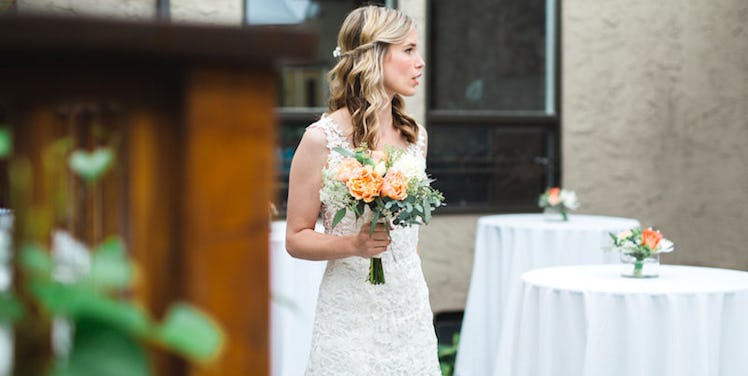
The Message Being Hugely Misconstrued: What's Really Intended By #NoBraDay
There are very few feelings quite as glorious as taking off your bra after a long day. If you are a human who wears bras, you understand.
If not, feel free to liken the experience to one of the following: sleeping naked on silk sheets; the first bite of a freshly baked turtle brownie; sex.
This is why, when I first found out about the Breast-Cancer-Awareness-Month-inspired event, #NoBraDay, I was understandably thrilled. On the surface, it’s a fun, frivolous idea that we can all get behind.
It encourages women to frolic, unconstrained by the cotton devil incarnate that is the brasserie, drumming up some much-needed discussion on an awful disease.
Similar to other movements intended to draw attention to serious issues that predominantly affect females, however, this one includes sexually-charged themes and blatant objectification.
Articles celebrating the day featured topics like, "Kim's Hard Nipples Make Kanye Smile" and "Celebs Famous For Letting It All Hang Out."
As a matter of fact, upon searching, up-to-date information on the event actually mentioning anything about Breast Cancer Awareness Month is inordinately difficult to find.
Even now, it's much easier to find photo galleries of see-through shirts and in-depth documentation on Kendall Jenner's "shameless" strut down the runway sans bra.
You may be wondering, “How can an event entitled ‘#NoBraDay’ be anything but sexual?” Or maybe, “Wasn't this event created to draw attention to breast cancer, no matter what the methodology?”
We know that photos generate higher engagement than statuses lacking visuals across most social media channels; thus, it's very likely that many people were aware of #NoBraDay. The issue is that the true meaning was absolutely lost and was instead, replaced with sex.
Furthermore, many women proclaimed the event was prime for "attention whores" while some chose to take advantage of the "opportunity" to spread their bra-less chests across the Internet. As if we need more animosity.
Therein lies my major point of contention, as well as the problem at hand: Why is this the best we can do for ourselves? Most importantly, don't breast cancer victims deserve more?
According to the Twittersphere, it would indeed seem that many are saddened by what the event has grown to represent:
How does #nobraday support cancer exactly? Stop showing your breasts and make a donation to cancer research/someone with cancer.#NoBrainDay — Richie Marvin® (@cashpharma) October 13, 2014
gross. #nobraday is trending. let's stop sexualizing breast cancer, please. any day now... — Lachrista Greco (@lachristagreco) October 13, 2014
Additionally, and as per usual, many are taking the opportunity to strip it wholly of its purpose in favor of slut-shaming:
#nobraday is trending to raise awareness for breast cancer?..just an excuse for ratchet girls to go nude.. — King With No Crown (@mcvaaey) October 13, 2014
I don't understand why there is a #nobraday when half these girls clearly don't even wear bras anyway — Chandler Beson (@itschanthemann) October 13, 2014
I do want to give a shout-out to men like this, however. Bless you:
Don't get et twisted, guys! #nobraday isn't for your gratification, but for an awareness. The breast cancer awareness, that is. — Amit Jha (@moterwala11) October 13, 2014
It seems that the extent of creativity associated with this campaign is in moderately witty tweets and rebellious memes of topless women with their backs actually turned away from the camera, lacking any visible side or under-boob.
These contributions won’t see nearly as much attention; they won’t receive the same numbers of views, re-tweets or favorites.
But perhaps, they will manage to inspire thoughts that are legitimately related to breast cancer, as opposed to thoughts originating from the assorted nether-regions of the world.
Here’s what you should take this day to consider:
According to the American Cancer Society, 40,000 women will die from breast cancer just this year; it is the second leading cause of cancer death for women. Men have a one in 1,000 chance of developing the disease.
Talk about sobering.
We can't control who suffers from breast cancer, but we can get the message out that early detection is vital; when discovered at an early stage, we have a 98 percent chance of survival. That's the message we should be spreading.
Photo Courtesy: We Heart It